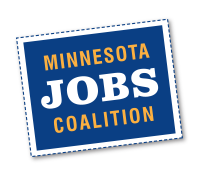Forum Communications: Dayton ready to deliver tax, spend package
Don Davis
Jan. 22, 2013
If Minnesota Democrats ever are to see a state budget they like, today is the day.
Gov. Mark Dayton is ready to announce his proposal at midday, giving Minnesota Democratic-Farmer-Laborites the only chance they have had in a generation to approve higher taxes and more spending on programs they hold dear.
Specifically what he plans to propose has been a closely held secret, although he campaigned in 2010 on raising taxes on the state’s richest residents and often discusses that philosophy. He and other Democrats also put a high priority on reducing property taxes. Plus, discussion about making changes to the state sales tax has increased in recent weeks.
The governor has talked about raising education funding and launching problems to create jobs.
Dayton faced the problem of filling a $1.1 billion deficit before he could think about increasing spending on state programs.
Senate Majority Leader Tom Bakk, DFL-Cook, has warned Democrats that they need to be patient and not expect Dayton and the Legislature to give them all they want.
“Now, with a DFL governor and two DFL majorities in the Legislature for the first time in 22 years, we are focused on our shared responsibility to govern well for all the people of Minnesota and to lead our state forward together,” Dayton, Bakk and House Speaker Paul Thissen, DFL-Minneapolis, wrote in a weekend column.
The trio, the top three politicians in state government, provided no clue as to how the budget will look, but hinted the changes could be major.
“It is time for a new approach: one that is fair, responsible and does not place the burden for solving our budget issues on the backs of middle-class families,” they wrote.
The three emphasized education: “A race to the top means that Minnesota should lead the nation in early education, K-12 and in higher education. But after a decade of disinvestment we have declined. This year is our opportunity to reverse course.”
Any funding increase depends upon a fair and reformed tax system, they said. “Middle class Minnesota families and businesses have seen their property taxes double over the past eight years. At the same time, the wealthiest Minnesotans pay a lower percentage of their income in taxes than middle class families and some corporations continue to enjoy unfair tax breaks.”
Republicans did not wait to criticize Dayton.
“Let’s go get the rich guy,” is how Sen. Dave Thompson, R-Lakeville, summarized what he expects to be the Dayton plan.
A GOP-oriented organization, the Minnesota Jobs Coalition, on Monday reminded Minnesotans that Dayton has pledged not to raise taxes on the middle class, keeping taxes level for 90 percent of the state’s residents. The coalition said Dayton is likely to break one of his promises, such as his opposition to taxing clothing and raising cigarette and gasoline taxes.
Democrats and Republicans have said tax reform is a priority, but do not agree on specific changes. Lawmakers have said the tax system needs to be simpler, fairer and more stable. They also are aiming for a balance among property, sales and income taxes.
Some lawmakers have said a plan to extend the sales tax to items like clothing could be part of a larger shift that would expand the scope of what is taxed while lowering the rate.
Taxing clothing sales already has proven controversial. A Mall of America official told a Senate committee this month a major factor in tourists deciding to come to Minnesota is the lack of tax on clothes, and tourism could be hurt by the change.



